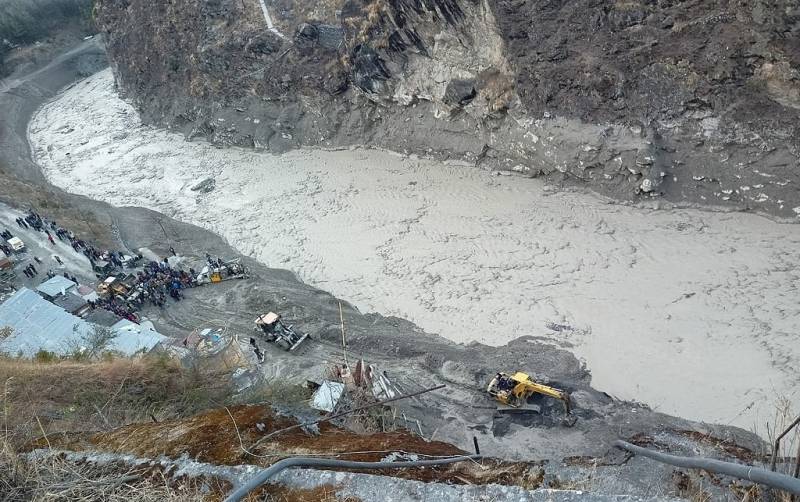India fears another flash flood from new Himalayan lake

Stay tuned with 24 News HD Android App

A newly formed Himalayan lake raised fears Friday of another flash flood above a disaster-hit valley in northern India, prompting authorities to conduct helicopter surveys and send a team on a 16-hour climb to investigate.
Thirty-six people died and 168 are still missing after a barrage of water and debris hurtled down the valley in the northern state of Uttarakhand with terrifying speed and force on Sunday, obliterating roads and bridges and smashing through dams.
The flash flood on the Rishiganga river is thought have been triggered by a chunk of glacier breaking off, or a glacial lake -- formed when a glacier retreats -- bursting its banks.
Glaciers are receding fast in the region due to global warming.
On Thursday, geologists said that a new lake had formed near the same river.
Naresh Rana, a geologist at Hemwati Nandan Bahuguna Garhwal University, released a video shot in the area, in which he pointed out the location of the lake and said "this means that the Rishiganga will breach again".
Satellite images and a helicopter survey had confirmed the presence of the lake, senior local police official Ashok Kumar told AFP.
He said that teams had been sent to investigate on foot, a trek that would take around 16 hours, with the spot at around 4,200 metres (14,000 feet) above sea level.
"But there is one important thing to note. For the last few days, there was less water flow in the Rishiganga. But since yesterday, the flow is a lot," Kumar said.
"That means that the lake has given some opening. It would have been dangerous if the water had just been collected and there was no flow."
A desperate and arduous search continued on Friday to reach around 30 people trapped in a tunnel since Sunday's flood, with hopes fading for their survival.
"We are trying to go to the smaller tunnel which is 12 metres below the existing one," Kumar said.
"In the small tunnel, we are hoping for the best... If they escaped the slush and the water, they might be safe in one corner."
